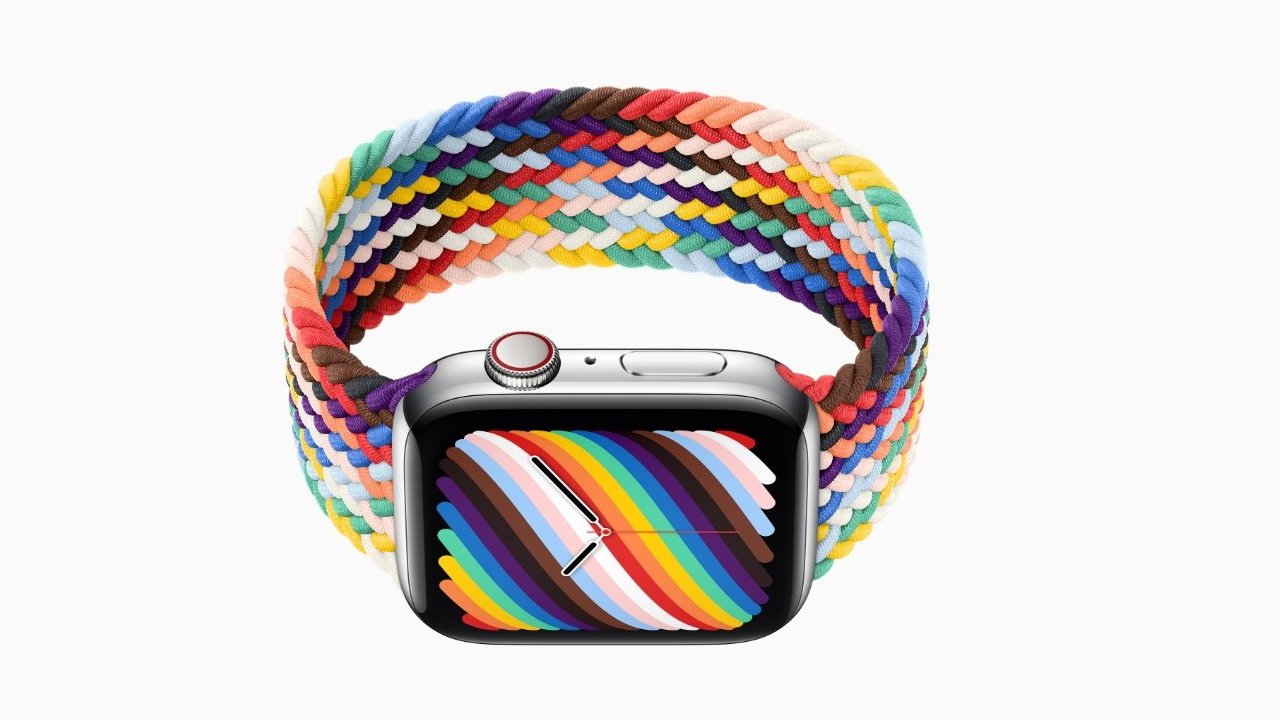Apple may never allow us to create whole Apple Watch faces ourselves, but it is looking at how you could show the Watch a band, or any object, and have it adapt to its color.

For eight years, users -- or at least third-party firms -- have wanted the ability to create Apple Watch faces and not be tied to just whatever Apple ships. It hasn't happened in nearly a decade, and it isn't going to happen any time soon.
Yet otherwise, Apple seems particularly keen on giving users choice when it comes to design. Alongside patents and patent applications to do with radical redesigns such as turning the Watch into one screen that wraps around your wrist, Apple keeps coming back to color.
For instance, one idea that Apple is known to have at least considered is a way to have an Apple Watch band change color based on what you wear.
Now, though, a newly-revealed patent called "Electronic Devices With Color Sampling Sensors," proposes letting users have some control over the color of Watch faces.
You already can adjust colors so that you change, for instance, the hour and minutes hands from white to red. But you can't change every element and you can only change colors within certain limits.
Apple's proposal does include letting users select "from a predetermined set of colors," but otherwise the Watch should adapt to the user's choice.
"The color [of the Watch face] may be... matched to the color of an external obiect such as a watch band (e.g., watch band or other watch band), a piece of clothing (e.g., a shirt or any other clothing item), or any other suitable external object," says the patent. "For example, a user may hold an external obiect over the display so that one or more sensors in [the] device can measure the color of the external object and produce the same color on [the] display 14."
"This color sampling process may allow the user to customize the appearance of [the Watch] display so that the color scheme on display... matches with the user's watch band, clothing, or other item."
So before you put on the Watch, you could in theory point it at your suit, your frock, your matching high-fashion shoes, or your car. Apple's patent says that this color-detecting sensor would be built into the front display of a Watch, or any other future device.
The color-detector would be in the front of the Apple Watch, possibly embedded within the display
"An electronic device such as a watch may include a display and a light sensor located behind the display," continues the patent. "The light sensor may be used to measure the color of external obiects."
"During color sampling operations, the display may emit light towards the external object in front of the display while the light sensor gathers color measurements," it says. "The display may emit a sequence of red, green, and blue light and the light sensor may detect an amount of reflected red light, reflected green light, and reflected blue light to determine the reflectance of the external obiect."
Then the device "may determine the color of the external object based on its measured reflectance."
For some reason, Apple separates its proposal slightly, giving first an explanation of how it would work specifically with just watch bands, and then with other items.
"The watch-band-specific algorithm may be used to map different sensor readings to different watch band colors from a predetermined list of watch band colors," it says. "[Then the] clothing-specific algorithm may be used to map sensor readings to any color within a color gamut."
"[Control] circuitry may display the color on the display so that the face of the watch matches the user's clothing or matches the user's watch band," it continues. "The control circuitry may apply constraints to map measured colors to acceptable display colors that meet desired criteria."
Presumably it's Apple who will decide what the desired criteria would be, but at least it's giving more and finer control to users than ever.
This patent is credited to six inventors, including Nicolas P. Bonnier. His previous work for Apple includes a system for helping Apple Vision Pro users see in low light using LiDAR.

